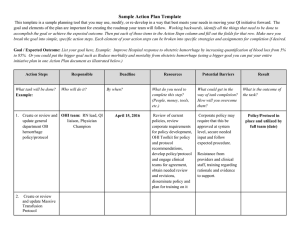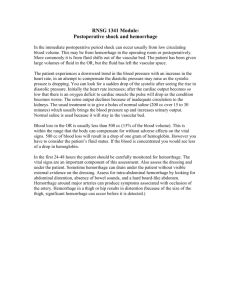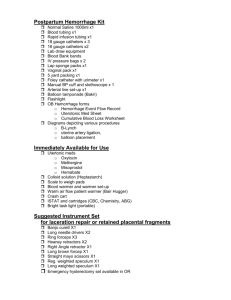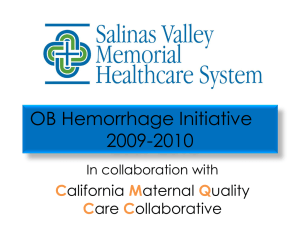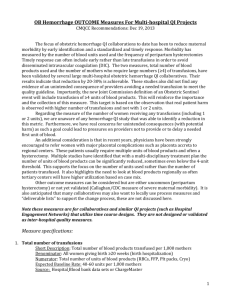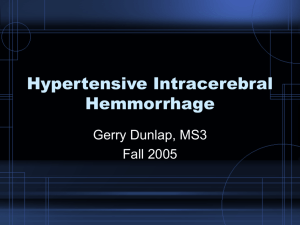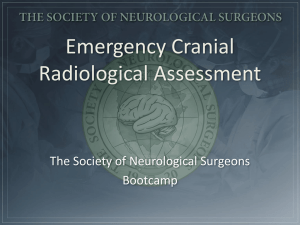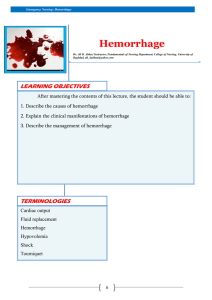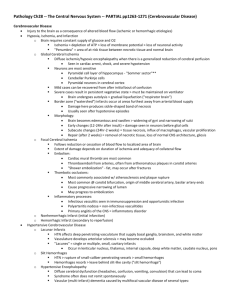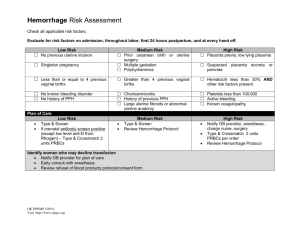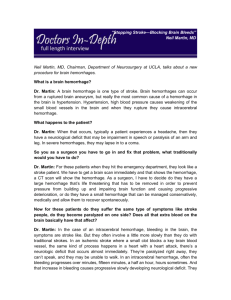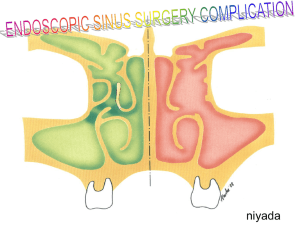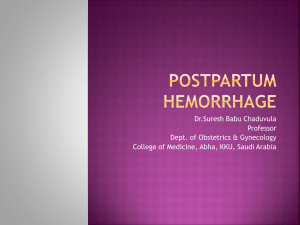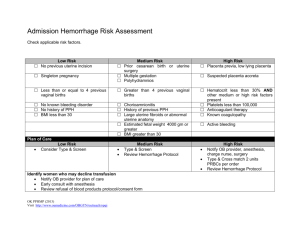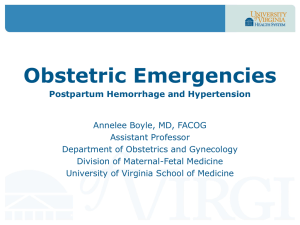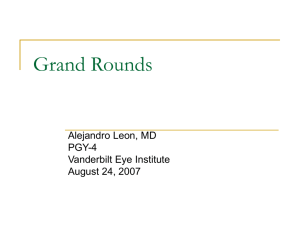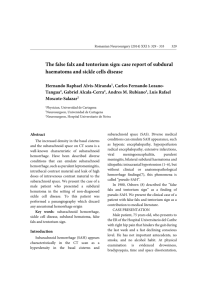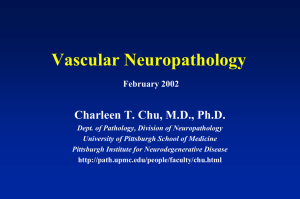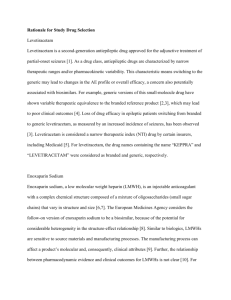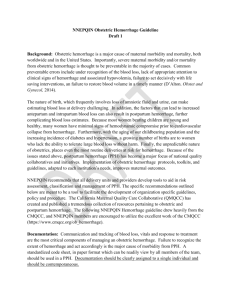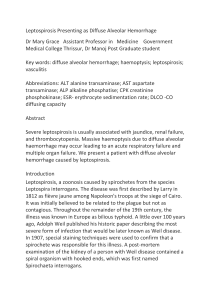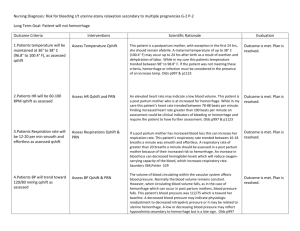OB Hemorrhage: A Collaborative Approach to Standardization
advertisement
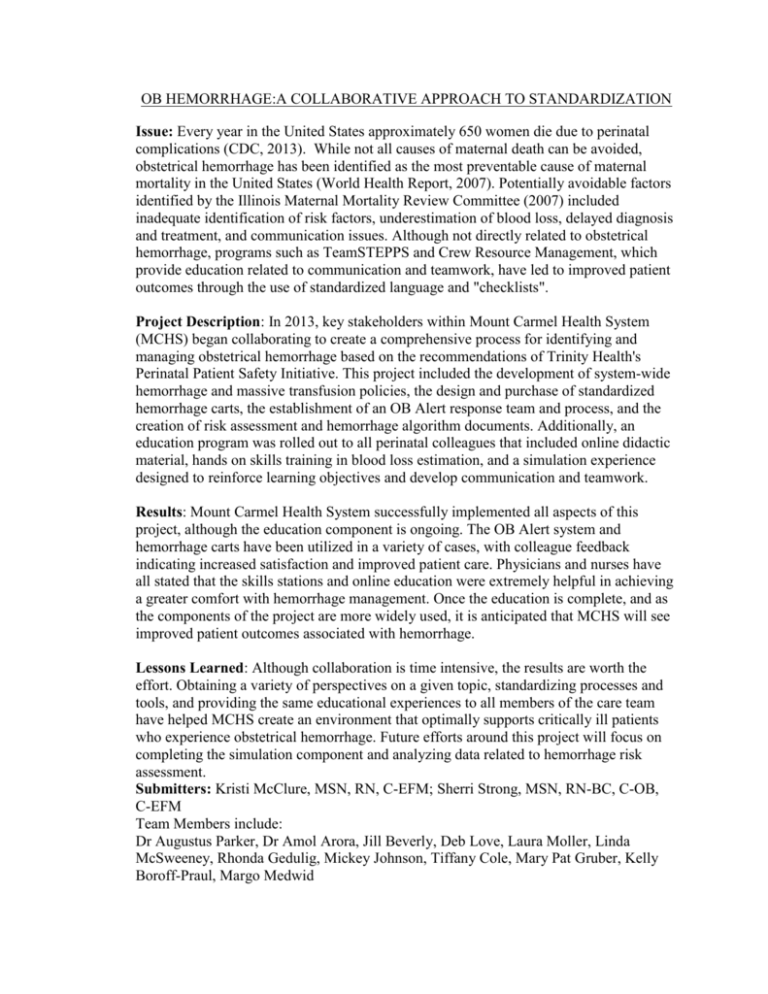
OB HEMORRHAGE:A COLLABORATIVE APPROACH TO STANDARDIZATION Issue: Every year in the United States approximately 650 women die due to perinatal complications (CDC, 2013). While not all causes of maternal death can be avoided, obstetrical hemorrhage has been identified as the most preventable cause of maternal mortality in the United States (World Health Report, 2007). Potentially avoidable factors identified by the Illinois Maternal Mortality Review Committee (2007) included inadequate identification of risk factors, underestimation of blood loss, delayed diagnosis and treatment, and communication issues. Although not directly related to obstetrical hemorrhage, programs such as TeamSTEPPS and Crew Resource Management, which provide education related to communication and teamwork, have led to improved patient outcomes through the use of standardized language and "checklists". Project Description: In 2013, key stakeholders within Mount Carmel Health System (MCHS) began collaborating to create a comprehensive process for identifying and managing obstetrical hemorrhage based on the recommendations of Trinity Health's Perinatal Patient Safety Initiative. This project included the development of system-wide hemorrhage and massive transfusion policies, the design and purchase of standardized hemorrhage carts, the establishment of an OB Alert response team and process, and the creation of risk assessment and hemorrhage algorithm documents. Additionally, an education program was rolled out to all perinatal colleagues that included online didactic material, hands on skills training in blood loss estimation, and a simulation experience designed to reinforce learning objectives and develop communication and teamwork. Results: Mount Carmel Health System successfully implemented all aspects of this project, although the education component is ongoing. The OB Alert system and hemorrhage carts have been utilized in a variety of cases, with colleague feedback indicating increased satisfaction and improved patient care. Physicians and nurses have all stated that the skills stations and online education were extremely helpful in achieving a greater comfort with hemorrhage management. Once the education is complete, and as the components of the project are more widely used, it is anticipated that MCHS will see improved patient outcomes associated with hemorrhage. Lessons Learned: Although collaboration is time intensive, the results are worth the effort. Obtaining a variety of perspectives on a given topic, standardizing processes and tools, and providing the same educational experiences to all members of the care team have helped MCHS create an environment that optimally supports critically ill patients who experience obstetrical hemorrhage. Future efforts around this project will focus on completing the simulation component and analyzing data related to hemorrhage risk assessment. Submitters: Kristi McClure, MSN, RN, C-EFM; Sherri Strong, MSN, RN-BC, C-OB, C-EFM Team Members include: Dr Augustus Parker, Dr Amol Arora, Jill Beverly, Deb Love, Laura Moller, Linda McSweeney, Rhonda Gedulig, Mickey Johnson, Tiffany Cole, Mary Pat Gruber, Kelly Boroff-Praul, Margo Medwid
